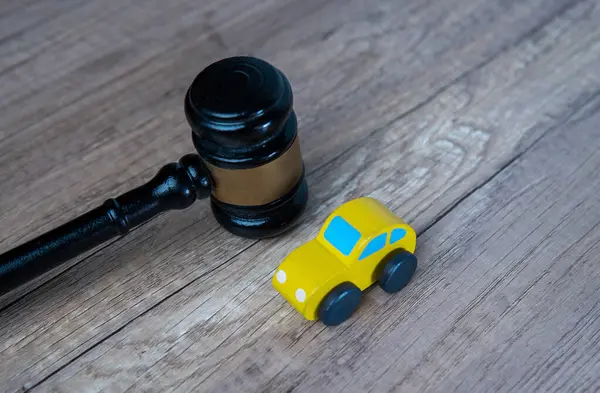California's Used Car Lemon Law Explained: Rights And Remedies For Buyers
Buying a used car can be a daunting experience, particularly when concerns about the vehicle's reliability come into play. In California, the Used Car Lemon Law offers a layer of protection for consumers, ensuring that they have recourse if their vehicle turns out to be a "lemon." This article will delve into the key aspects of California's Used Car Lemon Law, including the rights it grants buyers and the remedies available when a vehicle does not meet expected standards.
Understanding the California Used Car Lemon Law
The California Used Car Lemon Law is part of the state's broader Song-Beverly Consumer Warranty Act. This legislation primarily protects consumers who purchase new vehicles, but it also extends certain protections to used car buyers under specific circumstances. The law aims to hold manufacturers and dealers accountable for selling defective vehicles and provides remedies to buyers who find themselves with a car that has substantial defects.
When Does the Law Apply?
To qualify under the Used Car Lemon Law, the vehicle in question must meet several criteria:
Warranty Coverage:
The vehicle must still be under the manufacturer's original warranty or a certified pre-owned (CPO) warranty. This warranty could be in the form of a new car warranty that has not yet expired or a CPO warranty issued by the manufacturer or dealer.

Substantial Defects:
The defects must significantly impair the vehicle's use, value, or safety. Minor issues that do not affect the vehicle's overall performance or safety typically do not qualify.
Repair Attempts:
The law generally requires that the manufacturer or authorized dealer has made a reasonable number of attempts to repair the defect. This usually means that the vehicle has been repaired multiple times for the same issue, or it has been out of service for a considerable amount of time due to repairs.
Timeline:
The defect must have been reported to the manufacturer or dealer within the warranty period, and the buyer must allow a reasonable amount of time for the defect to be repaired.
Rights of the Buyer
Under the California Used Car Lemon Law, buyers are entitled to several rights if their vehicle is deemed a lemon:
Refund or Replacement:
If the vehicle cannot be repaired after a reasonable number of attempts, the buyer may be entitled to a refund or replacement vehicle. The refund typically includes the purchase price, sales tax, registration fees, and any incidental costs, minus a deduction for the buyer's use of the vehicle.

Attorney's Fees and Costs:
If the buyer prevails in a legal dispute under the Lemon Law, they may be entitled to reimbursement for attorney's fees and court costs. This provision is intended to make it easier for consumers to pursue their rights without being deterred by legal expenses.
Dispute Resolution:
California law encourages the use of arbitration or mediation to resolve Lemon Law disputes. These processes can be quicker and less expensive than going to court, and they offer a way to resolve the issue without a prolonged legal battle.
Steps to Take if You Suspect Your Car is a Lemon
If you believe your used car may qualify as a lemon, it is important to take the following steps:
- Document Everything: Keep detailed records of all repairs, including dates, descriptions of the issues, and any communications with the dealer or manufacturer. This documentation is crucial for building your case.
- Notify the Dealer or Manufacturer: Inform the dealer or manufacturer of the issues and give them an opportunity to repair the vehicle. Ensure that you provide this notice within the warranty period.
- Seek Legal Advice: Consulting with a Lemon Law attorney can help you understand your rights and the best course of action. An attorney can also assist with filing a claim and representing you in arbitration or court if necessary.
- Consider Arbitration or Mediation: Many manufacturers have arbitration programs that can offer a quicker resolution than court proceedings. However, if the outcome of arbitration is not favorable, you may still have the option to pursue legal action.
Exceptions and Limitations
While the California Used Car Lemon Law provides robust protections, there are exceptions and limitations to be aware of:
- Private Sales: Vehicles purchased from a private seller without a warranty generally do not qualify under the Lemon Law. The law primarily covers vehicles sold by dealerships or those under a manufacturer's warranty.
- Commercial Vehicles: The law generally does not cover vehicles used primarily for business or commercial purposes, although some exceptions may apply.
- Excessive Wear and Tear: If the vehicle's defects are due to abuse, neglect, or unauthorized modifications, the Lemon Law may not apply. Manufacturers and dealers are not required to repair or replace vehicles with issues caused by the owner's actions.
California's Used Car Lemon Law is a vital resource for consumers who find themselves with a defective vehicle. By understanding the law's provisions and taking the appropriate steps, buyers can protect their investment and seek redress if they end up with a lemon. Whether through a refund, replacement, or legal action, the law aims to ensure that consumers are not left bearing the burden of a faulty vehicle. For those navigating this process, consulting with a knowledgeable attorney can be an invaluable step towards achieving a favorable resolution. Click here to know more about the California used car Lemon Law.

